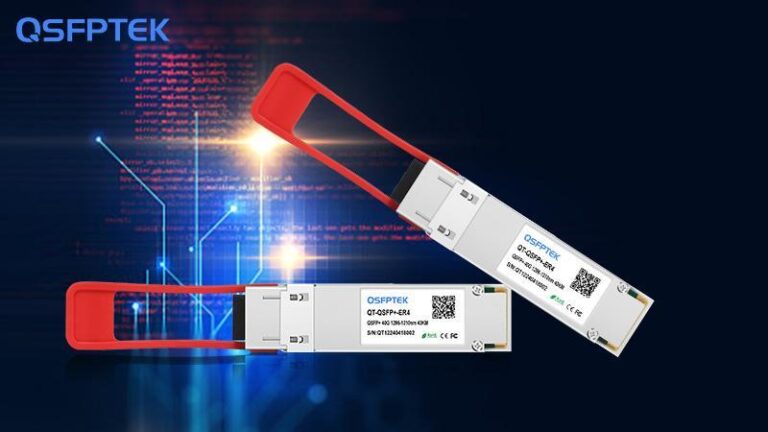How Data Analytics Transforms Beverage Supply Chain Efficiency
In today’s fast-moving world, being efficient is very important. This is especially true in the beverage supply business. Companies in this industry face many challenges, like changing customer needs, tough delivery routes, and strong competition.
Many beverage companies now use data to help solve these problems. Data helps them work faster and use their supplies better. It also helps them give customers a better experience.
By using data in their supply chains, companies can save money. They also learn more about their business.
Real-time data helps them track their stock and predict what customers will want. This makes their work smoother and more flexible. For more info, keep on reading.
The Importance of Data Analytics in Supply Chains
Data analytics offers a viewpoint that can transform how businesses operate. In the beverage sector, this means understanding patterns and trends that influence production and distribution.
Optimizing Inventory Management
Managing inventory is very important in the beverage business. Having too much stock takes up money and space. Having too little stock can cause you to run out and lose sales.
Data helps companies find the right amount of inventory to keep. It shows buying habits, seasonal changes, and what customers like.
With this information, businesses can plan better. They can avoid waste and make sure customers get what they want.
Enhancing Production Planning
Data also helps with planning how much to produce. Looking at past sales and supply changes, companies can guess future demand more clearly. This helps them use their resources better and avoid stopping production.
For example, if data shows more people buy a drink in summer, producers can make more before then. This way, they have enough to sell when demand goes up.
Improving Distribution Efficiency
Distribution efficiency determines how quickly and effectively a product reaches its destination. Data analytics plays a vital role in enhancing distribution networks within the beverage supply sector.
By analyzing travel times, vehicle capacities, and delivery schedules, businesses can optimize their logistics. This optimization not only leads to faster delivery times but also reduces fuel costs and overall operational expenses.
Route Optimization
Route optimization is a critical consideration for any beverage company. Leveraging data analytics helps in identifying the most efficient routes for deliveries.
By using real-time data, businesses can avoid traffic jams, road construction, and other obstacles that may delay shipments. Advanced software solutions can analyze historical data to predict traffic patterns, allowing companies to plan for more efficient delivery schedules.
Using IoT for Real-Time Insights
Internet of Things (IoT) devices enable real-time tracking of beverage shipments, providing unparalleled visibility into the supply chain. Businesses can monitor temperature, humidity, and other environmental factors that impact product quality. This data can be invaluable in ensuring that beverages are transported under optimal conditions, reducing spoilage and maintaining customer satisfaction.
Empowering Decision-Making with Advanced Analytics
The insights derived from data analytics empower decision-makers across the organization. With access to accurate and real-time data, managers can make data-driven decisions quickly.
This responds to market changes promptly, ensuring that the business remains agile and competitive. A study by McKinsey found that companies can achieve a 20% increase in efficiency with the use of advanced analytics, proving its power in the beverage supply chain.
Risk Management
Finding and dealing with risks in the supply chain is very important for long-term success. Problems can come from many places, like suppliers not delivering on time, sudden changes in what customers want, or natural disasters like storms. Predictive analytics helps by showing these problems before they happen.
When companies see risks early, they can make backup plans. These plans help keep things running smoothly, even if something goes wrong. This way, the business can avoid delays and keep customers happy.
Enhancing Collaboration Across the Supply Chain
Data analytics helps suppliers, makers, and delivery teams work better together. When everyone shares data and information, they can plan better. This means making the right amount of products and delivering them on time.
Good teamwork makes the whole supply chain work like one team. It reduces mistakes and delays. In the end, customers get their drinks faster and with fewer problems. This helps the whole business succeed.
Case Studies: Successful Implementations
Several companies in the beverage sector have successfully harnessed data analytics to transform their supply chains. For example, one major brewery implemented a data-driven supply chain management system that reduced its operational costs by 10% in just one year. By integrating their supply chain data with customer ordering patterns, they were able to align production levels with real-time demand, making their operations much more efficient.
Beer Line Cleaner Innovations
Furthermore, companies that produce equipment like the beer line cleaner have integrated data analytics to enhance maintenance schedules, ensuring their products are always operating at peak efficiency. This integration of analytics extends beyond just production; it impacts the entire supply chain, demonstrating the far-reaching benefits of utilizing data analytics.
Future Trends in Beverage Supply Chains
The future of beverage supply chains looks promising. Data analytics will help bring new ideas and tools.
Technologies like machine learning and artificial intelligence will make data analytics even better. These tools can give companies a clearer picture of what customers want and how the market is changing. This helps businesses plan and stay competitive.
We can also expect faster decision-making and better problem-solving. Automation may handle routine tasks, freeing up workers to focus on more important jobs. These changes will make supply chains quicker, smarter, and more flexible.
Sustainability Considerations
More and more, people and companies care about protecting the environment. Beverage companies want to be responsible and reduce their harm to nature. Data analytics can help by tracking things like how much water is used or how much pollution is created.
With this information, companies can find ways to save water, lower emissions, and waste less. These small changes add up and help protect the planet.
Using data to improve sustainability also makes companies look good to customers who care about the environment. This will be important for success in the future.
Embracing Data for a Competitive Edge
Data analytics is transforming the beverage supply chain, enabling companies to operate with greater efficiency and flexibility. From optimizing inventory management to enhancing distribution logistics, the benefits are significant and measurable.
Businesses that embrace data-driven decision-making will not only boost productivity but also reduce costs effectively. Investing in data analytics is not just a trend; it is a competitive edge that the modern beverage industry cannot afford to overlook.
For more related topics, visit our blog!





